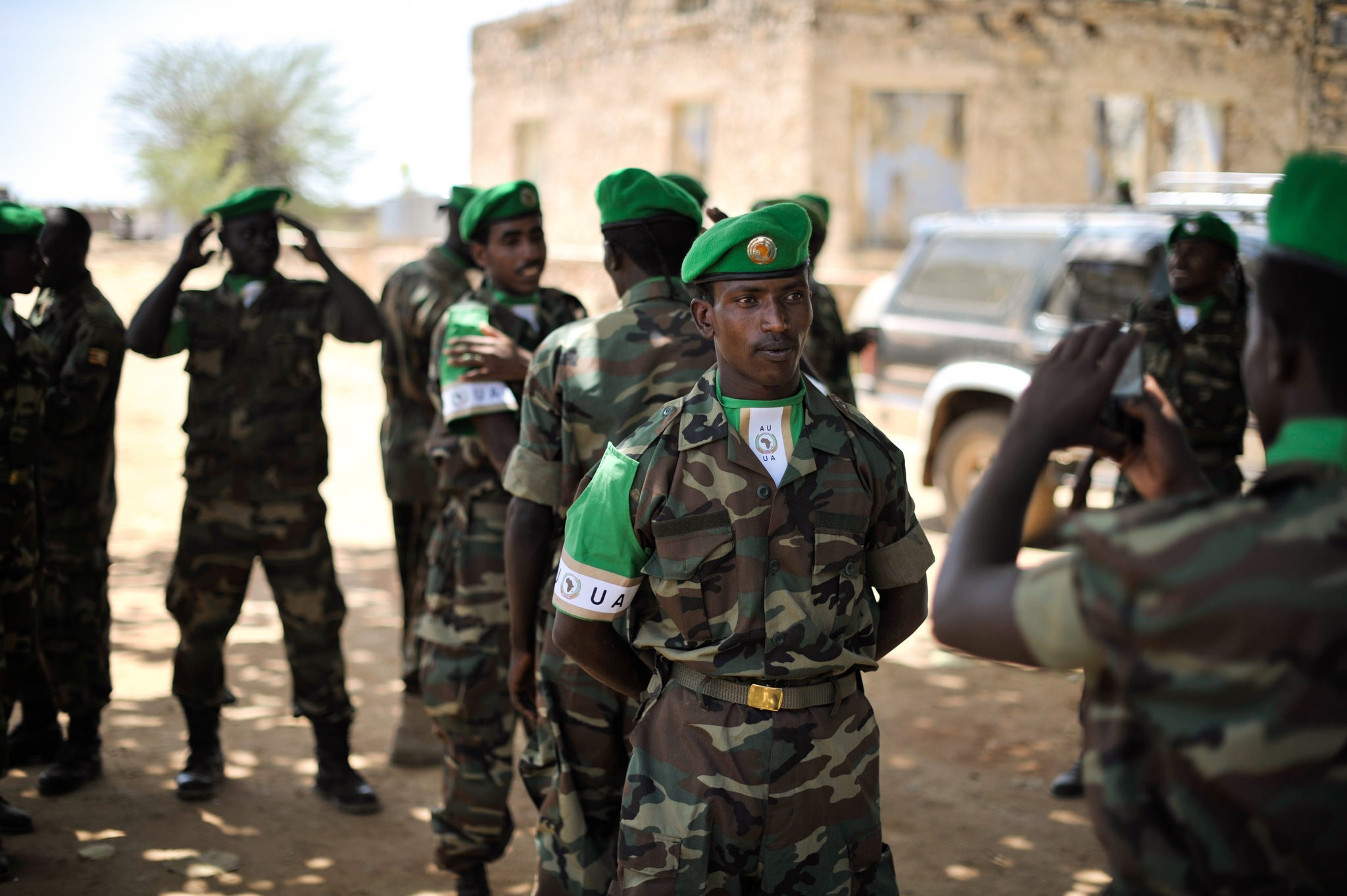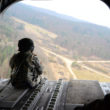Photo Credit: AMISOM Public Information
In April, the website of the U.S.-led Combined Joint Task Force–Horn of Africa (CJTF-HOA) announced that the United States and Ethiopia had signed a new agreement enhancing a “security partnership” in counterterrorism and other realms.
In attendance at the signing in Addis Ababa was Amanda Dory, Deputy Assistant Secretary of Defense for African Affairs, who obligingly made note of “just how progressive and strong Ethiopia is” and how “working together plays a key role in peace and security.”
Of course, the opposite argument can also be made: that American collaboration with the Ethiopian government in fact translates into enhanced insecurity for more than a few folks.
Consider, for example, the situation in the Oromia region surrounding the capital, where widespread protests have followed recent government efforts to displace an untold number of farmers as a means of courting international and domestic investors.
Five days after the announcement of the upgraded partnership with “progressive and strong” Ethiopia, a Horn of Africa researcher at Human Rights Watch reported that, “since November, state security forces have killed hundreds of protesters and arrested thousands in Oromia.”
When I visited the Oromia region in March, area residents pointed out that, while the government had for the moment shelved its land usurpation plans, this wouldn’t bring the dead people back to life.
Meanwhile, Ethiopia happens to jail more journalists than any other African country save its notoriously repressive neighbor Eritrea. Strong? Maybe. Progressive? Not so much.
Ethiopia happens to jail more journalists than any other African country save its repressive neighbor Eritrea. Strong? Maybe. Progressive? Not so much.
Incidentally, many of the imprisoned journalists have been convicted under none other than an antiterrorism law, which again raises the question of just how prudent it is for the United States to enthusiastically envelop Ethiopia in a war-on-terror embrace.
Not that America doesn’t do a stellar job on its own of terrorizing populations in the name of counterterrorism. Although the U.S. military closed its drone base in southern Ethiopia last year, unmanned aerial operations continue elsewhere on the continent and beyond.
For an idea of the fallout of such activities, consider a BBC article from 2014 on U.S. drone strikes launched from nearby Djibouti, which were benignly described as “sometimes killing civilians and attracting condemnation from human rights groups as ‘extrajudicial killings.’”
The opportunities for condemnation, it seems, only stand to multiply as the United States reinforces its military presence worldwide, inundating parts of Africa with Special Operations forces and secretive bases.
There are also the not-so-secretive ones. The 2014 Quadrennial Defense Review, which examines Defense Department “strategy and priorities,” lists department goals in Africa as including “investing in new, effective, and efficient small footprint locations… and developing innovative approaches to using host nation facilities or allied joint-basing.”
But as The New York Times reported, the U.S. announced in May of that same year that it had signed a new 20-year lease for Camp Lemmonier, its “sprawling” 500-acre base in Djibouti—a microscopic footprint, to be sure. The article cited a “plan to invest nearly $1 billion to upgrade the camp and other facilities.”
David Vine, associate professor of anthropology at American University in Washington, D.C., wrote in January at TomDispatch.com about the “unprecedented constellation of bases” erected by the United States over past decades, including in Africa. One effect of that project has been to “provide . . . support for a long list of undemocratic host regimes.”
And what do you know: these same bases have also “fueled radicalism, anti-Americanism, and the growth of the very terrorist organizations now targeted by the supposedly new strategy” of building more bases.
Indeed, just as the United States contributed to a not insignificant extent to the formation of Al Qaeda, bellicose meddling on the part of the global superpower has had more than a little to do with the rise of the Islamic State in Iraq and Syria, otherwise known as ISIS, or the Islamic State.
Relentless repetition of the need for “security”—and for military-based solutions to rampant threats to “U.S. interests”—have provided perks for some. The defense industry, for one, is more secure than ever. But the same can’t be said for human populations on the receiving end of alleged security-enhancing endeavors.
When Barack Obama paid a visit to Ethiopian Prime Minister Hailemariam Desalegn in July of last year, the two were careful not to dwell on topics like human rights during their joint press conference in Addis Ababa. The Ethiopian leader did however find time to address the importance of “attract[ing] more foreign direct investment” from the United States.
Citing a “number of renowned companies from the United States showing up to invest” in the country, the prime minister acknowledged: “We also understand that we have to improve our investment climate and environment where there are issues” such as “bureaucratic bottlenecks.”
When I visited Oromia, residents had more pressing concerns than investment climates and bureaucracy. Children under ten years of age had been detained, and killing and torture apparently were becoming standard law enforcement practices. Talk about stifling issues.
Ethiopia’s promotion to a “progressive and strong” U.S. partner undoubtedly paves the way for a further deterioration of public security in the country. But hey, at least it’s an excuse for more security measures.
Belén Fernández is a frequent contributor to The Washington Spectator.







0 Comments